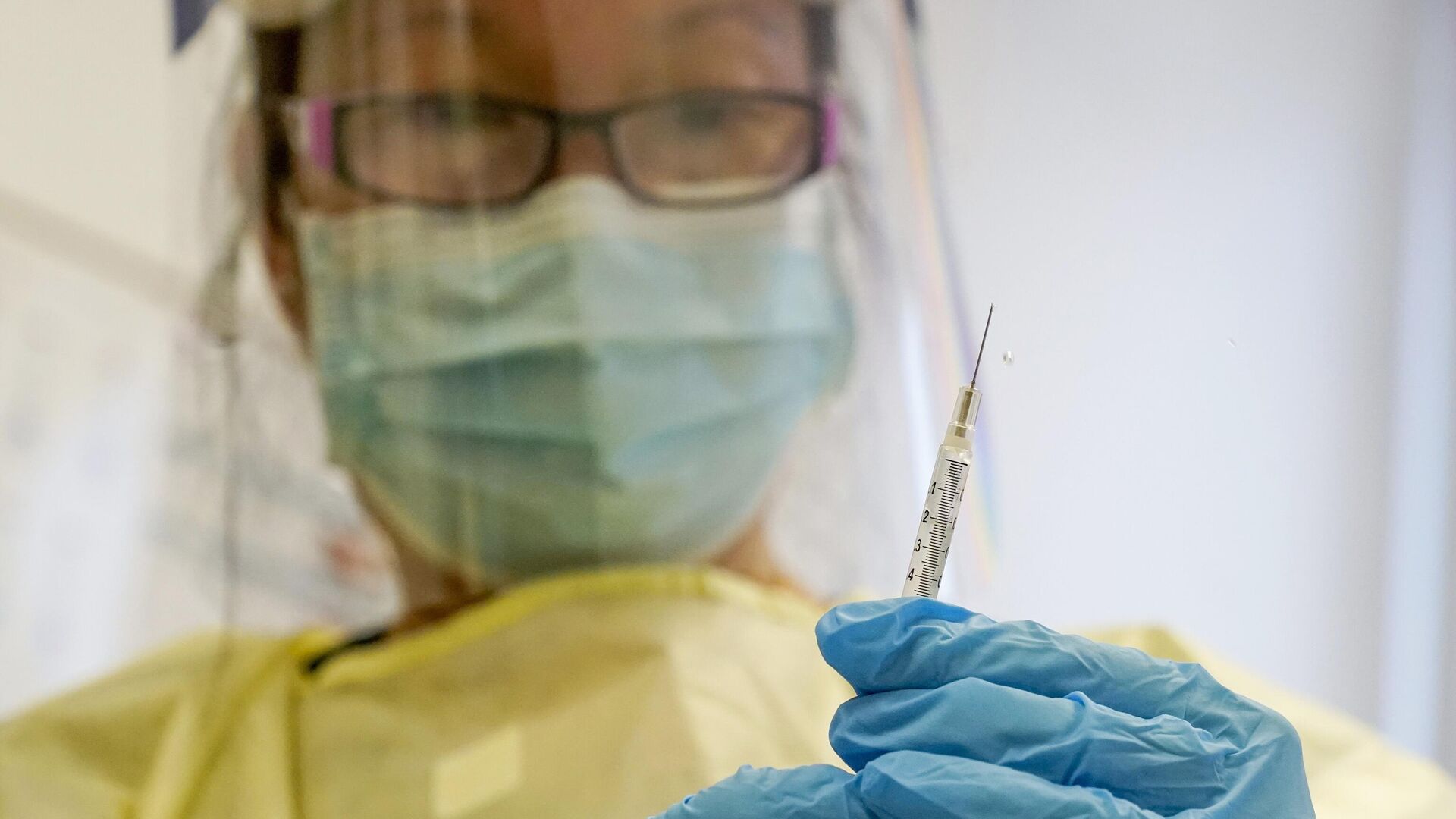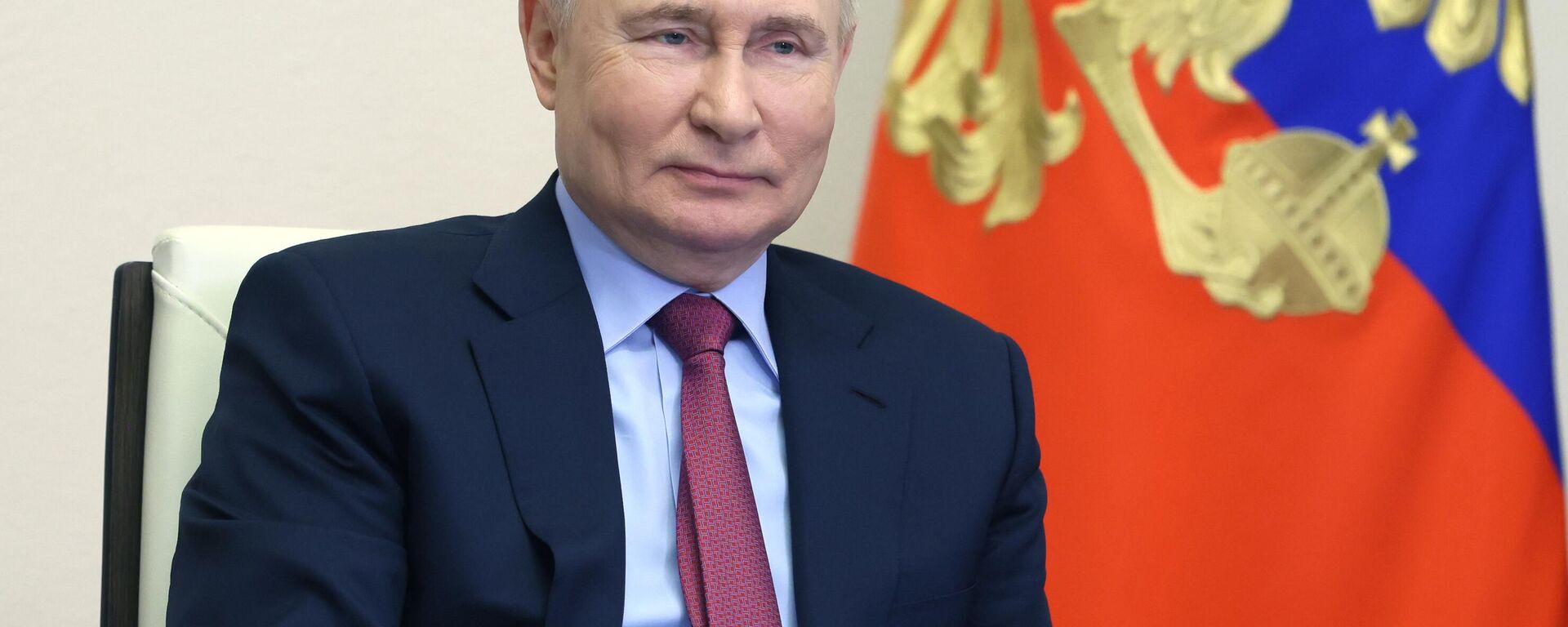https://en.sputniknews.africa/20240417/russia-africa-cooperation-on-infection-control-to-expand-consumer-rights-watchdog-says-1066111799.html
Russia-Africa Cooperation on Infection Control to Expand, Consumer Rights Watchdog Says
Russia-Africa Cooperation on Infection Control to Expand, Consumer Rights Watchdog Says
Sputnik Africa
The first African-Russian International Conference on the Fight against Infectious Diseases is being held in Uganda on April 17-19, with a Russian delegation... 17.04.2024, Sputnik Africa
2024-04-17T12:53+0200
2024-04-17T12:53+0200
2024-04-17T13:05+0200
sub-saharan africa
russia
russia-africa cooperation
east africa
uganda
guinea
vladimir putin
west africa
health
healthcare
https://cdn1.img.sputniknews.africa/img/07e7/06/0a/1059834774_0:23:3072:1751_1920x0_80_0_0_0b4ef496022756c8cbbb4eb54aa5d12e.jpg
Russia's cooperation with African countries in the fight against infectious diseases is planned to expand, said Russia's Chief State Sanitary Physician and Head of the Federal Service for Supervision of Consumer Rights Protection and Human Welfare, Anna Popova.For example, in 2014-2016. Rospotrebnadzor participated in the elimination of the Ebola outbreak in Guinea and, in 2017, assisted Madagascar in eliminating the plague outbreak. Last year, Russian specialists from the agency participated in the elimination of a major outbreak of intestinal infection in the Republic of the Congo.Russia has also delivered seven mobile laboratories to African countries and trained 1,500 African specialists in epidemiology, infectious disease diagnostics and biological safety. The head of Rospotrebnadzor added that neglecting regular vaccinations against various infections can lead to new threats to biological security, as it has already caused, for example, an increase in the incidence of measles.She also noted that outbreaks of the dangerous Ebola and Marburg fevers are intensifying and spreading to new areas, including in Africa. In addition, more than 3.5 million cases of dengue fever were registered in 2023, and the number of West Nile fever cases is growing, Popova said. In addition, the geography of cholera is expanding: last year, more than half a million people in 25 countries of the world fell ill, and for the first three months of 2024, only 110,000 officially confirmed cases of the disease in 23 countries, she emphasized.Popova also read a message from Russian President Vladimir Putin, who said the risk of new epidemics in the world is high, and Africa is particularly vulnerable to these challenges. The president noted that Russia, for its part, is ready for the most active cooperation in the field of health.The meeting in Uganda brings together leading experts from 13 countries: Uganda, Burundi, Burkina Faso, Vietnam, Gabon, Guinea, Egypt, Zambia, Mozambique, Namibia, Niger, Congo, Ethiopia, as well as from the African Centers for Disease Control and Prevention and the regional bureau of the World Health Organization for African countries.
https://en.sputniknews.africa/20240417/risk-of-new-epidemics-high-russia-ready-for-healthcare-cooperation-with-africa-putin-says-1066108972.html
russia
east africa
uganda
guinea
west africa
Sputnik Africa
feedback@sputniknews.com
+74956456601
MIA „Rossiya Segodnya“
2024
Maxim Grishenkin
https://cdn1.img.sputniknews.africa/img/07e7/0a/17/1063018107_0:0:1104:1103_100x100_80_0_0_03090c85a11f5d2e8a19cf1d989443c9.jpg
Maxim Grishenkin
https://cdn1.img.sputniknews.africa/img/07e7/0a/17/1063018107_0:0:1104:1103_100x100_80_0_0_03090c85a11f5d2e8a19cf1d989443c9.jpg
News
en_EN
Sputnik Africa
feedback@sputniknews.com
+74956456601
MIA „Rossiya Segodnya“
Sputnik Africa
feedback@sputniknews.com
+74956456601
MIA „Rossiya Segodnya“
Maxim Grishenkin
https://cdn1.img.sputniknews.africa/img/07e7/0a/17/1063018107_0:0:1104:1103_100x100_80_0_0_03090c85a11f5d2e8a19cf1d989443c9.jpg
russia, russia-africa cooperation, east africa, uganda, guinea, vladimir putin, west africa, health, healthcare
russia, russia-africa cooperation, east africa, uganda, guinea, vladimir putin, west africa, health, healthcare
Russia-Africa Cooperation on Infection Control to Expand, Consumer Rights Watchdog Says
12:53 17.04.2024 (Updated: 13:05 17.04.2024) The first African-Russian International Conference on the Fight against Infectious Diseases is being held in Uganda on April 17-19, with a Russian delegation led by Anna Popova, head of Russia's consumer rights watchdog, Rospotrebnadzor.
Russia's cooperation with African countries in the fight against infectious diseases is planned to expand, said Russia's Chief State Sanitary Physician and Head of the Federal Service for Supervision of Consumer Rights Protection and Human Welfare, Anna Popova.
"Today, Russia is again developing cooperation with the countries of the continent and is already interacting with Uganda, Guinea, the Republic of the Congo, Burundi, Madagascar, and we will expand this interaction. Specialists of our service are constantly involved in missions to assist partner countries in Africa," she said.
For example, in 2014-2016. Rospotrebnadzor participated in the elimination of the Ebola outbreak in Guinea and, in 2017,
assisted Madagascar in eliminating the plague outbreak. Last year, Russian specialists from the agency participated in the elimination of a major outbreak of intestinal infection in the Republic of the Congo.
"On the territory of Africa, Russia has established and is actively working in two joint scientific centers for prevention and research of infectious diseases: in Guinea and Burundi. The centers combat outbreaks of dangerous infections, organize expeditions to monitor existing and search for unknown microorganisms, develop new tests and train African specialists," Popova noted.
Russia has also delivered seven mobile laboratories to African countries and trained 1,500 African specialists in
epidemiology, infectious disease diagnostics and biological safety.
"The main goal of our cooperation is to build Africa's own capacity to prevent and respond to epidemics," Popova pointed out.
The head of Rospotrebnadzor added that neglecting regular vaccinations against various infections can lead to new threats to biological security, as it has already caused, for example, an increase in the incidence of measles.
She also noted that outbreaks of the dangerous Ebola and Marburg fevers are intensifying and spreading to new areas, including in Africa.
In addition, more than 3.5 million cases of dengue fever were registered in 2023, and the number of West Nile fever cases is growing, Popova said. In addition, the geography of cholera is expanding: last year, more than half a million people in 25 countries of the world fell ill, and for the first three months of 2024, only 110,000 officially confirmed cases of the disease in 23 countries, she emphasized.
Popova also read a message from Russian President Vladimir Putin, who said the risk of new epidemics in the world is high, and Africa
is particularly vulnerable to these challenges. The president noted that Russia, for its part, is ready for the most active cooperation in the field of health.
"The risk of new global epidemics and the spread of already known dangerous diseases remains very high. The African continent is particularly vulnerable to these challenges and needs to accelerate the development of medical, scientific and technological capabilities to protect the population from various infections. And Russia, for its part, is ready for the most active cooperation in this most important branch of health care," Putin said.
The meeting in Uganda brings together leading experts from 13 countries: Uganda, Burundi, Burkina Faso, Vietnam, Gabon, Guinea, Egypt, Zambia, Mozambique, Namibia, Niger, Congo, Ethiopia, as well as from the African Centers for Disease Control and Prevention and the regional bureau of the World Health Organization for African countries.



